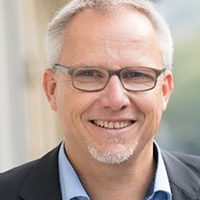Insecure Overachievers and Their Beliefs
The Insecure OverachieverSince the 1950s, McKinsey & Company, one of the world’s leading strategy...
The US-American Dan Buettner is an extreme sportsman, adventurer and author of National Geographic. On his expeditions to various parts of the world he had become aware of a phenomenon that he first reported in 2005: the "Blues Zones". These are geographical regions which are characterized by a significantly higher life expectancy than in the rest of the world. One of these "Blue Zones" is the Okinawa archipelago, which belongs to Japan today. Japan's southernmost prefecture consists of 363 islands, on which a total of 1.3 million people are living. 900 of these inhabitants are 100 years and older, which is an unusually high life expectancy even for Japanese conditions. The average life expectancy for men there is 86 years while German or US-American men on average only become 78 years old.
Three Essential Factors lead to Longevity
Anthropologists have thoroughly studied the lives of the people of Okinawa, and have identified three essential factors for the extraordinary longevity of the inhabitants.
What is the purpose of YOUR life?
The German word for meaning “Sinn” derives from the old term "sin", which means "looking for a track". Many managers with whom we work do not have a precise idea of the meaning that their lives have or might have. For more than a few asking the question alone is quite an unpleasant experience. And yet, to perceive a connection between one’s day-to-day life and a higher meaning is the ultimate source of inner strength and self-control. Experiencing a purpose in life make your actions become more meaningful. It increases your feeling of orientation as well as the sense of belonging and coherence. Rather than placing the individual and his sole well-being at the center of action, purpose focuses on something which is right and important in a larger context and which is greater than any individual self-interests. Every human being can make sense only by himself, even if the meaning might be amplified by our surroundings, by other people who are close to us, or by the work which may need us to get done. Since purpose is, in the widest sense, a conviction, it can be modified to the extent that a conviction can be changed.
What difference are YOU making?
So, what is your meaning in life? What kind of difference will you have made when you leave this earth? Will your career and the price you paid for it have paid off? What would you like to leave as your heritage? What shall people be thinking about when they remember you? Many executives with whom we work have no answer to these questions. And that, although life is finite for all of us. Managers are used to being in charge, having influence and keeping control. And yet all our lives end with a huge loss of control: our death. The human need for meaning is a gift of this perspective.
Over to you now. Which actions are you taking to make the world a better place as compared to a world without you? What kind of difference do you intend to make at different levels of your life?
For example, regarding …
Let us know what your ikigai is!

Karsten is passionate about getting to the core of things in leadership coaching. His clients often describe him as an intuitive, empathic and at times challenging sparring partner who asks the right questions.
He helps his clients to look at issues from a different angle to reach their goals.
Karsten has an extensive international business and leadership background gained over 16 years.
He held leading positions at Accenture, Bombardier Transportation and Dell. In his last position as Managing Director for DELL's consulting business, he built up the field of business consulting in Europe.
Karsten is a Leadership Coach since 2006. He is accredited by the European Mentoring and Coaching Council (EMCC)and the World Economic Forum. He published several articles and books on the topics leadership, coaching and resilience. Furthermore, he is a certified psychotherapist (naturopath) and works as faculty at the Center for Responsible Leadership at WHU business school in Koblenz.

The Insecure OverachieverSince the 1950s, McKinsey & Company, one of the world’s leading strategy...
Leave a Comment